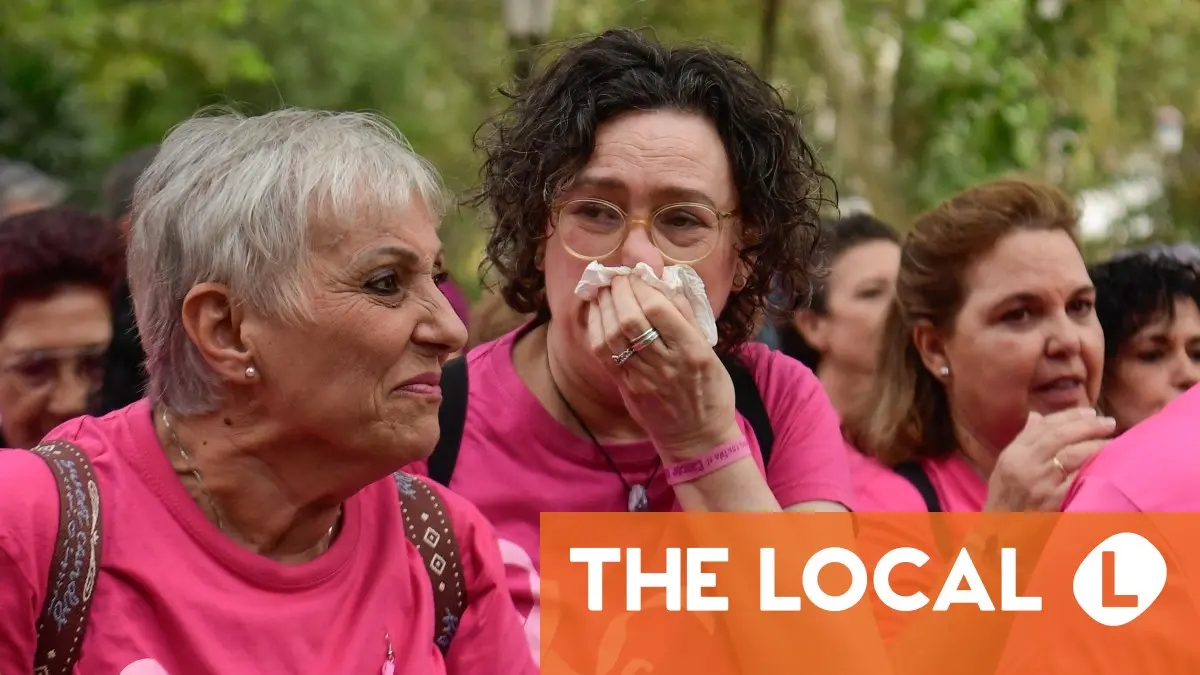Here's EXACTLY how to tell if your snoring is caused by potentially deadly sleep apnoea - and the hidden signs every spouse should look out for

Published: | Updated:
Millions of Britons with an undiagnosed sleep condition which dramatically raises the risk of heart attacks and strokes could soon benefit from a revolutionary gadget.
The small device, called AcuPebble SA100, sticks to the neck and detects breathing patterns associated with sleep apnoea, which affects about eight million people in the UK.
Obstructive sleep apnoea (OSA) occurs when the walls of the throat relax and narrow during sleep, blocking the airways. This interrupts normal breathing, with symptoms including loud snoring, noisy and laboured breathing, and times when breathing stops and restarts with gasps or snorts.
During an episode, the lack of oxygen triggers the brain to pull the person out of deep sleep so that their airways reopen. Sufferers are also more likely to develop cardiovascular disease, kidney disease and lung cancer.
Next week, results from a landmark trial will be presented at the British Sleep Society conference in Brighton, with the aim of pushing health chiefs to roll out the device across the NHS.
Despite gaining approval in December from the spending watchdog the National Institute for Health and Care Excellence (NICE), just a handful of Trusts offer it to patients. Experts say this delay means patients are being left without a potentially life-changing diagnosis.
AcuPebble records a patient’s breathing patterns associated with sleep apnoea, which affects about eight million people in the UK
At present, to monitor a patient’s breathing, many NHS Trusts rely on overnight sleep studies that involve staying in hospital – and waiting times for these can be lengthy.
As well as raising the risk of long-term issues such as heart problems, in the short term sleep apnoea causes fatigue – due to poor sleep – which can represent a significant danger while driving.
‘The fact that AcuPebble is already being used successfully within the NHS is a real reason for optimism, because it shows what’s possible when change is allowed,’ says Professor Esther Rodriguez Villegas, founder and CEO of Acurable, the spin-out company from Imperial College London which is behind the device.
‘But this shouldn’t depend on a few exceptional teams – there’s no reason why all patients across the country shouldn’t benefit from the same proven innovation.’
A 2022 study published in the BMJ found that the device was nearly as effective as gold-standard sleep studies, with experts saying its real benefit is the scale at which it can be delivered.
The company says it could be used to identify patients who may not have realised they have sleep apnoea but are at high risk.
Frequent urination during the night and headaches in the morning can both be symptoms of sleep apnoea.
Professor Villegas says: ‘Looking ahead, the technology also opens the door to exploring early identification in people known to be at higher risk, such as those with obesity, hypertension, type 2 diabetes or women after menopause.
‘That’s not standard practice yet, but the capability now exists, and it’s an area that could make a real difference to patient outcomes if developed carefully.’
Professor John Stradling, a sleep apnoea specialist at the University of Oxford, says: ‘With a device like AcuPebble, you have to accept that it is not going to be as accurate as a sleep study. But if it is cheap, the benefit is the number of patients you are able to screen, so it does potentially have merit.’
Half of all people with obstructive sleep apnoea are undiagnosed, experts suggest.
Prof Stradling says: ‘One of the main reasons for people going undiagnosed is a lack of awareness. Often patients in their 50s, 60s and 70s believe that their symptoms are just a sign of getting old, as symptoms often creep up over months or years.
‘It is also hard to determine when symptoms become obstructive sleep apnoea – which is why there are so many different estimates on the number of people who suffer from the condition – but as soon as it starts to interfere with day-to-day life you really need to see a doctor.
‘Feeling exhausted and sleepy throughout the day is a tell-tale sign that someone may be experiencing sleep apnoea.
‘That will be alongside loud snoring – often to the point the patient is sleeping in a separate room from their partner.’
Currently there is no drug licensed for the condition, and patients are often prescribed continuous positive airway pressure (CPAP) – a machine that delivers air through a mask at night. But as many as half of those with OSA struggle to stick to using the CPAP masks, due to the discomfort of wearing it.
Studies have also shown that reducing alcohol intake, stopping smoking and a diet that avoids ultra-processed, sugary or high-fat dairy can help. Being overweight is one of the biggest risk factors for OSA – research has shown that 50 per cent of people with a BMI over 40 will suffer the condition.
‘Having a neck circumference of over 17in is the main risk factor,’ says Professor Stradling.
‘Losing weight often cures sleep apnoea, and the incredible revolution in this area is weight-loss injections.
‘These will dramatically reduce the prevalence of sleep apnoea in the next decade.’
Daily Mail






